Favourite Quotes
I love quotes. I have a huge collection of quote images stored in my google photos and a database in Notion of quotes from books I have read, videos I have or podcasts I have listened to.
Throughout the school year, I post a daily quote on our staffroom TV display along with our daily staffing absences & replacements along with staff duties (yard duty, first aid, staffroom) for that day. Sometimes these spark interesting conversations amongst staff over recess and lunch breaks.
Some of my favourite quotes are:

I think this has been my favourite quote since I was in high school. It reminds us that great achievements begin with small steps. It encourages us to start with the first step, however small it may be, clock up some ‘quick wins’ and that by tackling them one by one we can achieve our desired outcome.
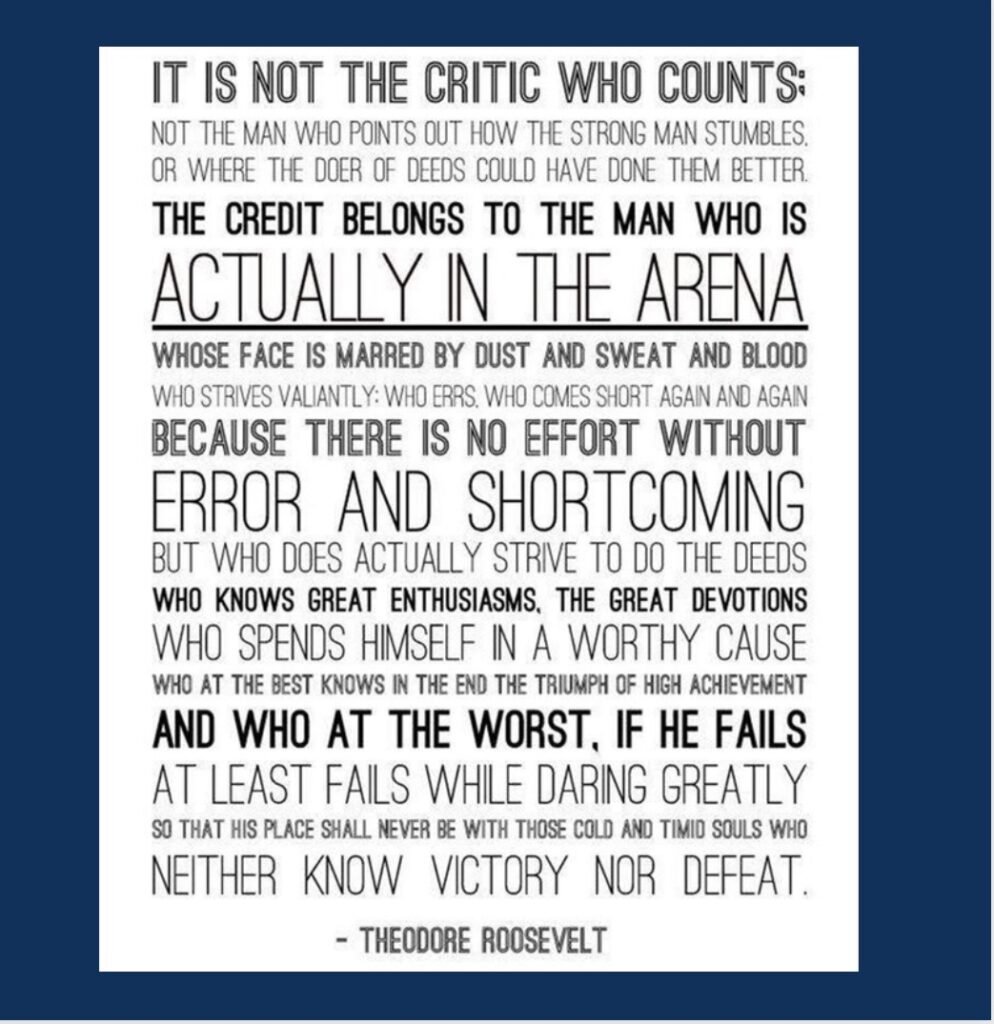
I was chatting about this quote earlier in the week with Nathan van der Monde after he mentioned Brene Brown’s book (check out the show on Netflix too!). Often there are many who are happy to stand on the sidelines and throw mud at those who are doing the work, taking on the battle and giving advice on how things could be done better or differently. As a leader, I welcome feedback and suggestions, but I have also learned to filter and carefully consider them, rather than accepting them blindly.

I heard this quote from a keynote by Pasi Salsberg at a conference I went to early on in my teaching career. Many years ago, I built a database that help track student behaviours and I had this quote appear when staff logged on to record incidents.
Whilst data is important, I think it’s important that we are ‘data informed’ rather than ‘data driven’ in our decision making. To me, the term ‘data driven’ implies that if X + Y are present then we must do Z. Often with people there is much more ‘grey’ than ‘black and white’ and a blanket, one size fits all response is not always effective. A ‘data informed’ approach utilises the information available to help guide and direct the overall decision and next actions.
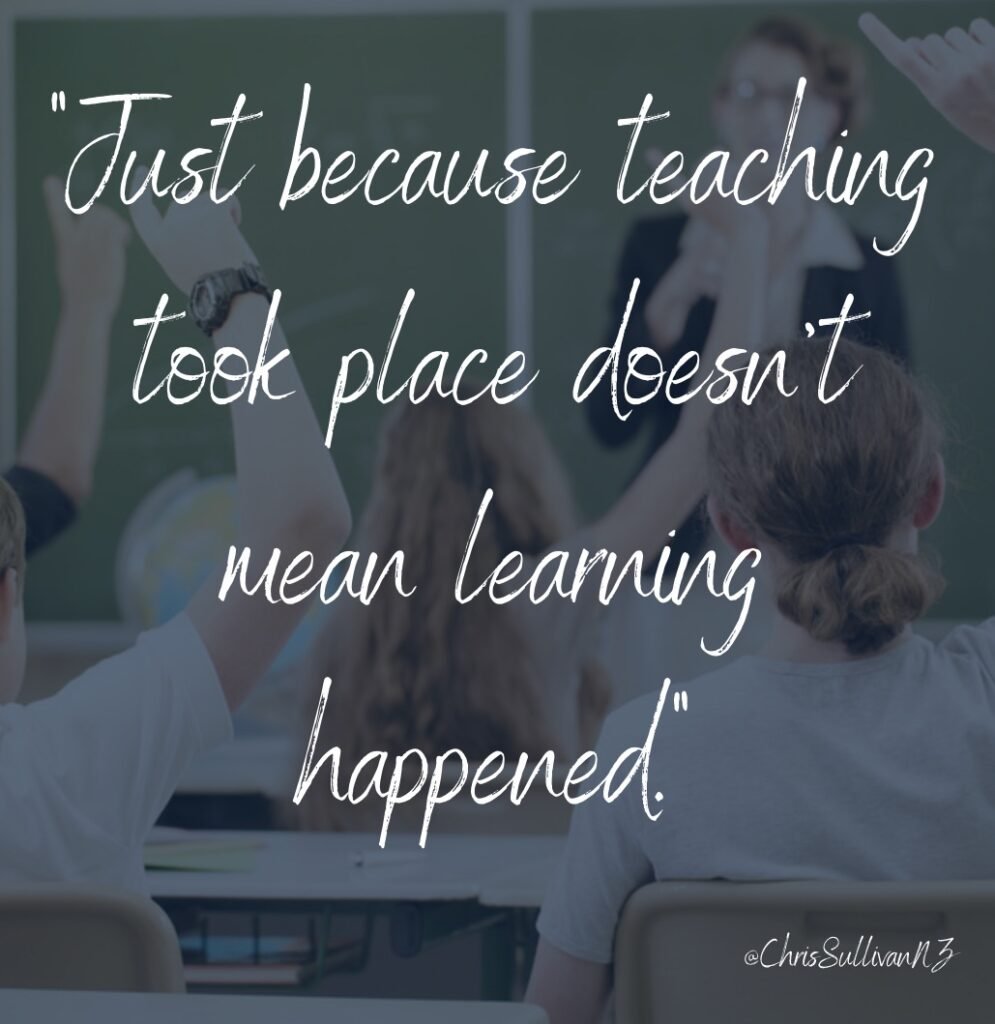
This quote highlights the importance of considering all factors that impact learning. The environment, the learner's prior knowledge, their individual learning styles, their motivation and their readiness to learn all play a role in the learning process.
It is our responsibility to create an environment that is conducive to learning and to differentiate to meet the needs of all learners. To ensure that learning has taken place, we must assess the level of learning that has happened. Some examples could be by using exit tickets, assessment tasks or observational notes. It is then important that we use this to help guide, shape and direct future planning and learning.
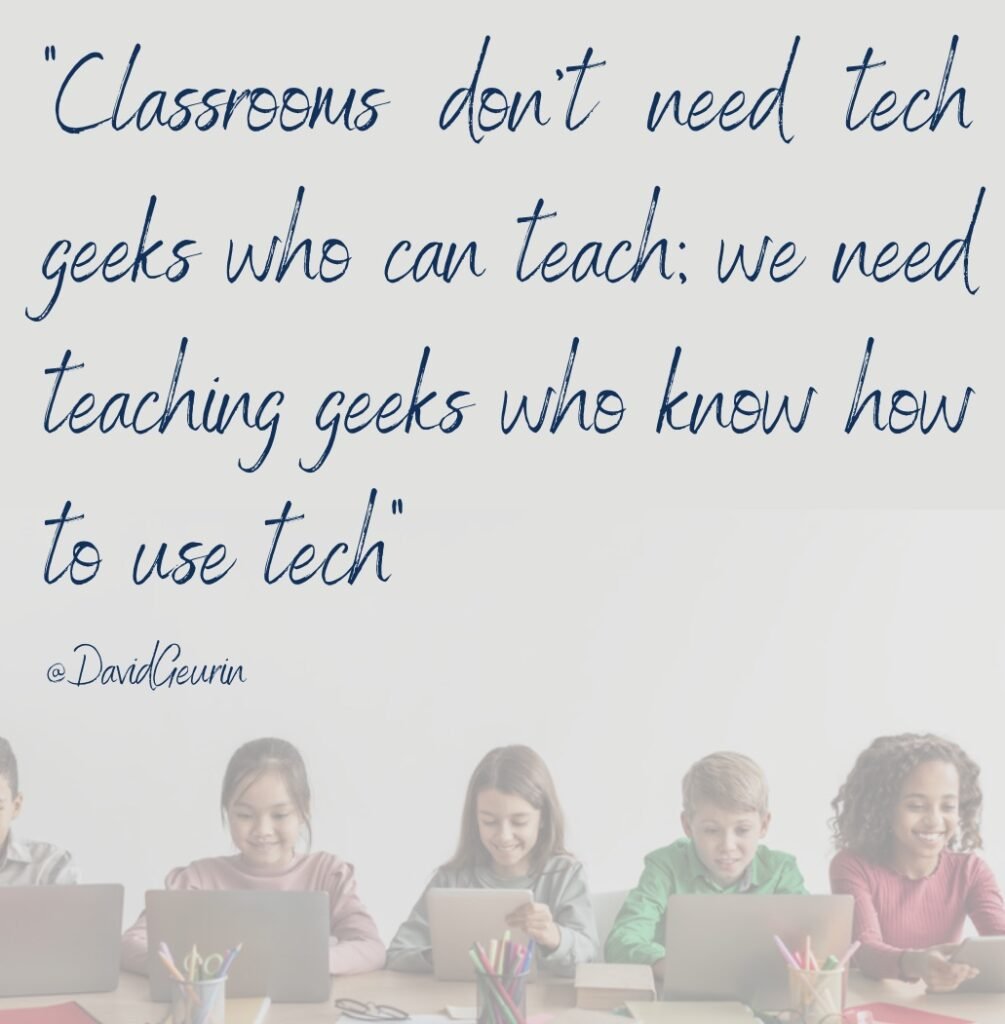
It is not enough for teachers to simply have a technical understanding of software and hardware. They must possess a strong pedagogical knowledge to know when and how to be able to use technology to effectively to engage learners and create meaningful learning experiences.
It is also not enough to simply ‘substitute’ a pencil and paper task by using technology. Technology can be used to facilitate and support a range of learning activities such as personalised content delivery, collaboration, formative and summative assessments and online simulations. Technology can also help to promote student autonomy, creativity and engagement.
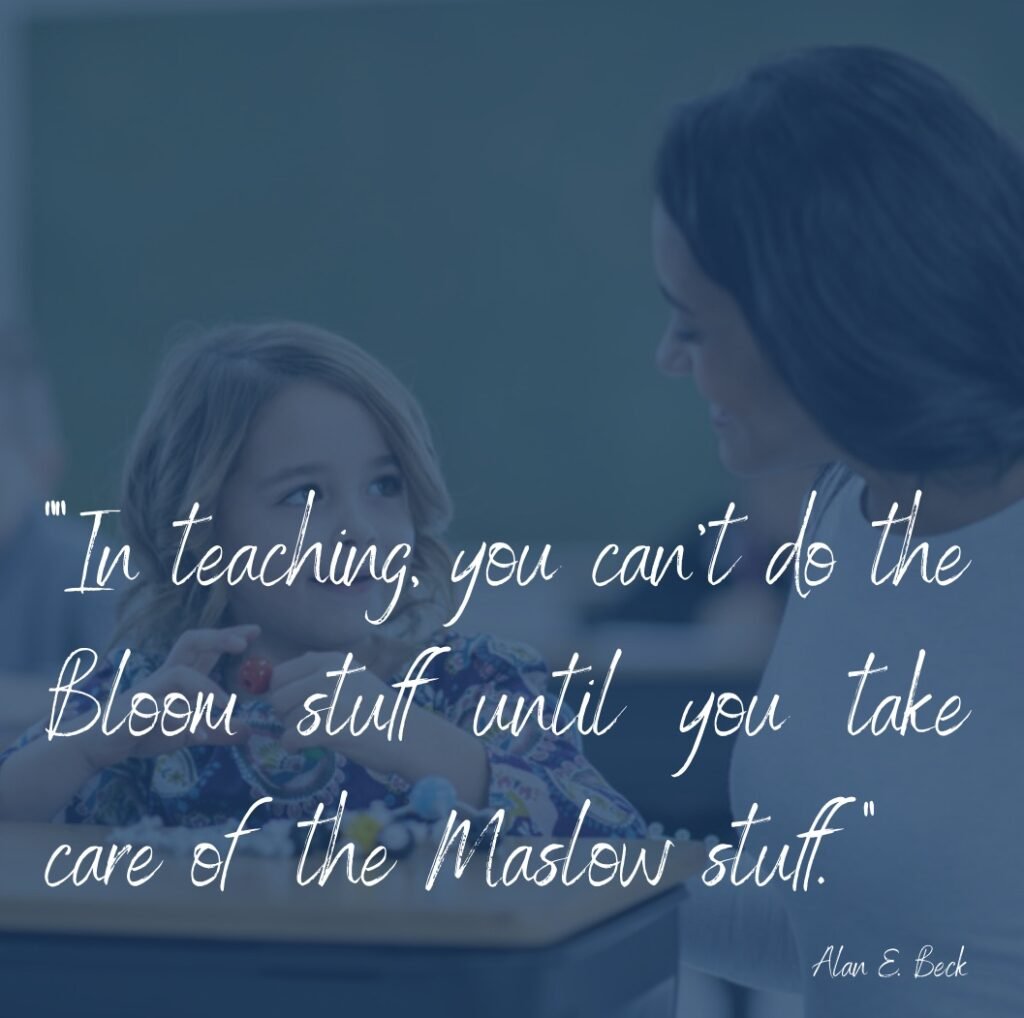
As a graduate teacher, I think this was the first lesson I learned. I was so worried and focused on ‘covering the curriculum’ and getting my readingwritingmaths sessions structured and didn’t focus on building relationships and establishing the ‘climate in the classroom’ I wanted to create.
The quote is referring to the Maslow’s Hierarchy of Needs, which suggests that humans must satisfy their basic needs such as food, shelter and safety before they can move on to higher order needs such as self-esteem and self-actualization. For schools, this means that we must take care of the basic needs of our students before we can help them reach their full potential.
This means creating a safe and supportive learning environment where all students feel respected and valued. We must also ensure that there is a sense of belonging and connection and that all students feel connected to their peers and teachers. We must also ensure that our students have the necessary resources and support to be successful in their learning.

At times, I think we are too quick to underestimate the capabilities and accomplishments of younger students. They often have more potential than we realize.
I have been fortunate enough to support the Junior School Council in most schools I have worked and continue to be amazing at what students are capable of with the right scaffolding and support.
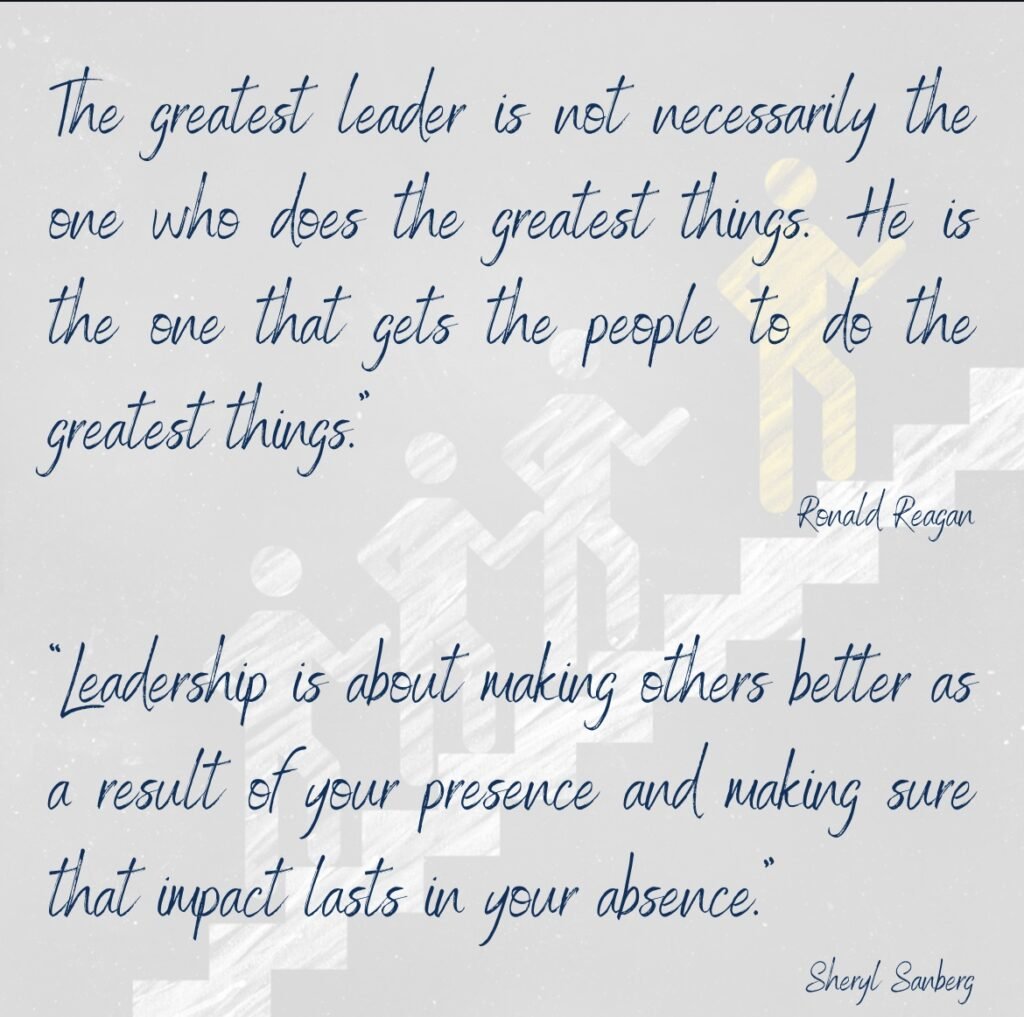
So I cheated and combined these two as they both follow similar themes.
These quotes were shared with me by my Leadership Coach from the Victorian Academy of Teaching and Leadership. A key focus of our work together was around trying to build the capacity and skillsets of others rather than trying to do everything myself. Doing so helps to support succession planning so one person does not hold all of the knowledge and also helps to create a stronger education system where knowledge and experiences can be shared more broadly. Finding time to do this when schools are already such busy places continues to be a challenge and does require a heavy investment of time early on, but the return from this investment is well worth it in the long run.
What’s your favourite quote? Share it in the comments!
